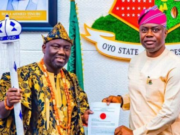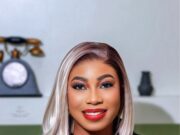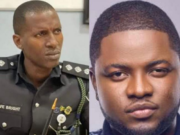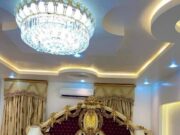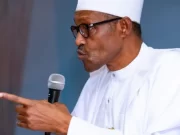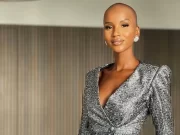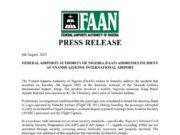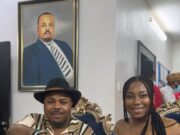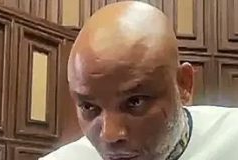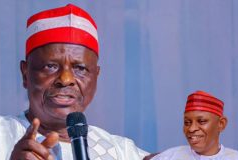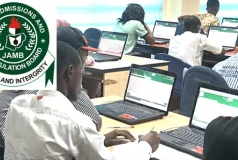
By: Godknows Igali
The primaries of Nigerian political parties for the selection of candidates for 2023 General Elections have come and gone, leaving a trail of national dyspepsia of sorts. At a time when the opportunity of political change was expected to elicit eruptive cheers, this situation of staggering mood deserves, as the biological sciences would do, a deeper enquiry into understanding the forms and structures which underline the electoral process. Also, for historians as empirical scientists, which many of its practitioners claim to be, the main tool for accurately recording of current events for future generations entails getting into their roots and foundations.
Actually, in historical realism, one of the greatest events that attract common human interest for future generations is the process by which political leaders emerge, are selected and the course of the events of their lives. This is why even in African history, for example, as in all histories, much of what we read is about how the strongest of men and women such as Mansa Musa of Mali, Chaka the Zulu, Queen Amina of Zaria, Olofin Adimula Oduduwa of Ile Ife, Oba Eweka of Benin, King Jaja of Opobo, etc, etc, came to power and their numerous deeds. So fast forwarded, therefore, Nigeria’s Election 2023 portends great historicity, deserving of studious chronicling.
Ahead of the 2023 politicking, especially the Office of Presidency being the linchpin, gladiatorially, the names of the high and mighty in become country’s governance landscape began to be dropped as likely successors to President Muhammadu Buhari whose eight years, two tenure will end by May 29, 2023. Most prominent was that of the man who handed over power to President Buhari, that is Dr. Goodluck Jonathan, the 14th Head of State of the country. In a rather pan-Nigeria and messianic manner, no specific political party was assigned to him, but the mention of his name for several months took over the space, creating emotions and flusters of mixed shades. Not unusual, the much introverted former President now a global Ambassador-at-large maintained taciturnity as public commentators combatted one another on the rationality of his supposed likely entrance. Ultimately, this never happened.
Frontline Swordsmen
Since then, the parties have gone on to pick and choose their candidates for the races ahead. The party which had thrust Olusegun Obasanjo, Umaru Musa Yar’Adua and Goodluck Jonathan to national leadership during the present Fourth Republic, the Peoples Democratic Party (PDP), had such names as Alhaji Atiku Abubakar, a former Vice President and serial contestant who is now its valedictorian and about sixteen other aspirants, scattered from all parts of the country in the line-up. These included Bukola Saraki, who was former Senate President, Aminu Tambuwal, the serving Governor of Sokoto State, Bala Mohammed, also the serving Governor of Bauchi State. As well were the outgoing Governor of oil-rich Rivers, Nyesom Wike and his Akwa Ibom State counterpart, also from oil-rich Niger Delta, Udom Emmanuel. There was also Mrs. Tari Oliver, the only courageous woman to join the male folk, Pius Anyim, former Secretary to the Federal Government and Sam Ohuabunwa, a former President of the Pharmaceutical Society of Nigeria.
As for the All Progressives Congress (APC) which has power placed on its shoulders in the past seven years in Nigeria, the battle for ascendancy was shockingly grisly and a game of all comers. The contending squad included Ahmed Bola Tinubu, the self-acclaimed National leader of the party and former Governor of Lagos State and Professor Yemi Osinbajo, the serving Vice President of Nigeria. And quite unusually, was the line-up of serving Ministers who expressed interest to abandon their jobs and pursue the office of President Buhari, their boss. These, included Godswill Akpabio (Niger Delta Ministry), Ogbonnaya Onu (Science and Technology portfolio), Rotimi Amaechi (in charge of Transportation). The APC also had a few Governors who are about completing their tenures such as David Umahi of Ebonyi, Ben Ayade of Cross River, Kayode Fayemi of Ekiti State as well as Mohammed Badaru of Jigawa State and the relatively youthful Governor of Kogi State, Yahaya Bello.
The country’s apex legislature, the National Assembly was not left out of the APC political duel as Ahmed Lawan whom God has favoured with 4 whole years as President of the Senate, Rochas Okorocha who had previously ruled Imo State, Ibikunle Amosun, the former Governor of Ogun State, home of the former President, Obasanjo and Nobel laureate Professor Wole Soyinka all joined the fray. There was also the Niger Delta oil and gas czar, Tein Jack-Rich.
In a country where there are eighteen registered political parties, not surprisingly, some of the erstwhile aspirants who were in the two main parties soon flaked off to find other places of sojourn; where they could more easily capture attention perhaps unopposed. The most prominent of these are the former Governor of Kano State, Rabiu Kwankwaso who went on to join hitherto obscure New Nigeria Peoples Party (NNPP). Also, former Governor of Anambra State, Peter Obi also branched off to join the workers’- based Labour Party; an ideological satire for a leading self-made entrepreneur and capitalist. Each of the other political parties has equally rounded up the selection of their aspirants, expectedly more easily as the stakes for selection were lower, the coast was clearer and the courses, less contentious.
THE COMMON TRENDS
Almost every political jurisdiction in the world has its individualising electoral nuances and idiosyncrasies; and not the least some oddities. So it is with Nigeria. But in our time where the plague of the Stockholm Syndrome already seems to ride the population roughshod, the entire process of picking the main contestants for the Presidential Race has however thrown up a number of insidious traits and underlying denominators of power and politicking in Nigeria.
The patterns of noticeable political behaviour during the primaries seems furthering the existing prescriptive political order of villainous leadership consolidation, dimming expectations of precipitate political transformation. The things that happened include:
i) Influence of big names: The political process of Nigeria from the primaries seems, unfortunately, not to have thrown up major surprises and upsets as is becoming common in some other countries. So, big names dominated the environment and rode it roughshod. This manifested in the emergence of such persons Rabin Ahmed Tinubu, Atiku Abubakar and Rabiu Kwankwaso.
Prominently, few Nigerians have wielded the kind of influence as Alhaji Bola Tinubu, the flag bearer of the APC. Tinubu is reputed to have put five governors in office and controlled the affairs of those States viz Lagos, Ogun, Ekiti, Osun and Ondo States and to a lesser extent, affairs in Oyo State as well. Tinubu is also responsible for putting the Vice President in his position, having earlier taken him out of the class room as a Professor of Law to serve him as Attorney General while he was Governor of Lagos State. Also, he had under his robes six Cabinet Ministers occupying critical portfolios and a coterie of top functionaries of the Federal government, all of whom at different stages in their careers had been under his tutelage.
No wonder Tinubu, holder of “Jagaban” title of the Borgu Kingdom famed for its geostrategic place during British-French colonial rivalry of late 1890s and “Asiwaju of Lagos”, both denoting a battle-ready iconoclast, arrogated to himself in Yoruba language, saying ‘Emi lo’kan’ meaning “it is my turn”. In other words, the king maker now poised to become the king himself. It was therefore, not surprising that nobody could match Tinubu at the APC and there was no upset in favour of all those who dared to stand against him as aspirants.
In the case of the PDP, the near attempt of an upset through the meteoric rise of the Governor of Rivers State, Nyesom Wike, was plummeted by the might of Atiku Abubakar a veteran politician and business man. Also reeling with the title of Waziri (Chief Counsellor) to the Emir of Adamawa whose suzerainty extends from Adamawa State of Nigeria and into Cameroon’s Province du Adamawa, has maintained a penchant for contesting and losing the presidential elections in different political parties in the past four opportunities. His presence in PDP therefore was perceived somewhat as a birth-right and he easily emerged on top.
For the decampees, especially from the PDP to other smaller parties, it was equally serial, as the events followed a homologous pattern. Both Kwankwaso and Peter Obi had an easy ride through, with virtually no opposition in the NNPP and LP.
The unfortunate outcome here is that in Nigerian politics, new entrants, no matter how bright or professionally formed, found it difficult to leave an impression or a mark in the more established political parties. This is contrary to the recent experience in several other jurisdictions where there are always surprises and infusion of new blood. For example, when Barack Obama became President of the United States of America in 2008, or Tony Blair’s upshot in the United Kingdom as Prime Minister in 1997, and not the least, President Nicholas Sarkozy and Emmanuel Macron of France, they were not the biggest names. Rather, all of them were budding upcomers with passion, vision and mission. Coming nearer home, South Africa’s Cyril Ramaphoza, Prime Minister Abiy Ahmed of Ethiopia and even our neighbouring President Macky Sall of Senegal and George Weah of Liberia, it was the same.
ii) Gerontocratic Predilection: Agreed that age comes with wisdom, but in a world that is fast becoming innovative, digitalized and technology-driven, this truism falters and pans out. Many countries in the world are today ruled by young vibrant entrants into politics, some with varied forms of service in public or private sectors. But in this recent experience in Nigeria, the frontliners, Atiku Abubakar and Bola Ahmed Tinubu are relatively advanced into their 70’s. Ironically, by Nigeria’s current demographic composition, people above the age of 65 years are a mere 2.73% in 2020, while those between the ages of 40 to 65 years are 30% and all the rest are below 40 years. Yet, all the main political parties would prefer to present advanced grandpas.
Even if some may argue that this septuagenarian adoption by the country’s two big parties follows the recent pattern of the U.S. where in recent times, Donald Trump and Joe Biden, both of that ilk emerged at that high level of leadership. But this is not a best-case scenario as that same country has in recent times been ruled by Barack Obama who was 47, Bill Clinton, 46 and George Bush Jnr was 54, when they took office. In the case of France, it is even more dramatic as Sarkozy was 52 years and Macron was only 39 years when they took over the Elysée Palace. In same vein, Canadian Prime Minister, Justin Trudeau was 43 years and Austrian Chancellor Sebastian Kurtz was mere 31 years when he first became Austrian Chancellor and ruled for two terms.
Yes, the APC and PDP candidates have a constitutional right to show up for the primaries and are the greatly endowed with hands-on politics, but there is no doubt, that they would not be as vibrant as younger people to lead this bubbling country of 200 million people.
iii) The Evil Spell of Money: The game of politics always comes with big money all over the world. This is understandable when it is considered that politicians have to traverse wide national spaces and deploy financial resources beyond the ordinary. This is in order to be able to create access to the right platforms for being heard and appreciated. Sadly in Nigeria and some other African countries, the big money that comes with politics has odiously unleashed the most corrupting monsters ever imaginable, reaffirming that old euphemism “money is the root of all evil”.
During the primaries, coming from similar tendencies as in 2019, as 2023 beckons, Nigerian politicians have now notoriously introduced a pattern of sharing almost irresistible sums of money to buy their way through the entire value chain of the primaries. So, politicians have devised different vote-buying strategies – buy over delegates, buy over other aspirants and ultimately induce voters. In some cases, the more cunning and equally reprobate delegates were able to pledge their fealty to as many aspirants as possible and ended with bigger sums of money.
The end result of this awkward practice of vote-buying which the security agencies were unable to prevent or stop, is that the highest bidder often took the day, almost like an auction exercise. This is very deleterious for the proper development of the politics of the nation as it means that the best who present themselves may never get the opportunity to serve in any high elected office. The stark implications as averred recently by my good friend, Professor Pat Utomi is that many “good men” like him or even yours truly who had attempted to be Governor or Senator in the past and were outspent mercilessly, merely fizzled out of the seeming electoral orgy.
iv) On Ideology and Knowledge: It was the great Greek philosopher Aristotle, the “Father of Politics” who once said that the foundation of all leaderships is knowledge. His treatise insists that Kings should be philosophers and be able to show a keen display of knowledge about society and what would make it better than an ordinary person would do. In particular, modern politics is supposed to be based on well-articulated ideologies which are supposed to be the aggregation of the thoughts, ideals and philosophy of the particular political leader.
The founding fathers of Nigerian democracy attained fame and had their names etched in gold for their pristine thoughts. Even up to the Second Republic, ideology was still to a large extent, a core component of Nigeria’s politics, unlike the present reign of opaqueness. Chief Obafemi Awolowo’s Unity Party of Nigeria (UPN) was clearly centre-left while Aminu Kano’s Peoples Redemption Party (PRP) was proletarian and leftist as against Dr. Nnamdi Azikiwe’s Nigerian Peoples Party (NPP) and former President Shehu Shagari’s National Party of Nigeria (NPN), both of which were centre-right.
In the run-up to the elections, it was expected by many, therefore, that aspirants within parties should have been subjected to rounds of debates on their ideals, primary philosophies and primary developmental agendas. Sadly, apart from tours to meet delegates and party-men, most of the political parties did little of that, leaving relative darkness on what plans these candidates who emerged top have that qualified them to be the flag bearers. So, in essence, the cart has been put before the horse in choosing people to become the bellwethers of party ideals.
v) A Lamentation for Igbo Inclusionism: From the start of this country’s politics, the British colonial system identified the existence of a tripod of three main ethnic groups. Therefore, when the Arthur Richard’s Constitution was promulgated in 1946, the country was delineated into three regions with Northern Region for the Hausa and Fulani, Eastern Region for the Igbos and Western Region for the Yorubas. Imbedded in-between these three groups were the actual larger population of indigenous nationalities better known, as “Minorities”. For example, the Ijaws being the fourth largest ethnic group are balkanized into six States with only Bayelsa being homogenous, while the Gbagi, often corrupted as Gwari, of north central Nigeria are found in six States but predominate the FCT.
At the negotiations for independence of this country, the founding fathers in the spirit of “give and take” and “precarious balancing”, were able to put in place a political structure that ensured that all groups had a sense of belonging through inclusive governance arrangements. Even when independence came in 1960, Dr. Nnamdi Azikiwe was ceremonial President as Governor-General of the country, from the East, Sir Abubakar Tafawa Balewa who was the Head of Government/Prime Minister from the North while Chief Obafemi Awolowo, Opposition Leader was from the West.
During the Second Republic in 1979, with the adoption of American-style democracy, Alhaji Shehu Shagari from the North became President, Dr. Alex Ekwueme from the East became Vice President, while Dr. Joseph Wayas from Southern minority became President of the Senate. This was the inspiration for a Federal Character Commission (FCC) and inclusive governance became firmly entrenched in the 1999 constitution.
Since the Fourth Republic, the Yorubas as represented by Chief Olusegun Obasanjo ruled for eight years (1999 – 2007) and are now holding Office of the Vice President since 2015. Similarly, the North as represented by President Yar’Adua ruled for three years (2007-2010) and now President Buhari since 2015; and in like manner, the South-South through President Goodluck Jonathan also had a shot for five years (2010-2015). It is argued therefore, that power should shift to either the South-South to complete its remaining four years, or better still to the South East which has NEVER ruled the country in a democratic ambience.
This formed the groundswell for the agitation by the Southern Governors, later joined by their colleagues from the North in the APC, as well as by regional opinion leaders for a southern Nigerian person especially from the South-East in 2023. Alas, in defiance, the PDP and a few of the other parties have picked candidates from the northern part of the country.
Even more troubling, apart from Peter Obi who is still a major contestant from the South East, and few others in smaller parties, the Igbos have again been left in the lurch; a very sordid situation for peace, mutual co-existence and national integration.
But many have been quick to argue while sympathising with the plight of the Igbos, that this travesty is to some extent self-inflicted as most of its aspirants refused to realise that there is strength in unity. This was seen in the primary election under PDP where it was easy for fellow northerners as Tambuwal, Bala Mohammed and Mohammed Hayatudeen to step down to enable their kin, Atiku Abubakar to win. Same pattern occurred in the APC where erstwhile aspirants Fayemi, Amosun, Prof. Ajayi Boroffice and Bankole all stepped down, paving the way for Tinubu, a fellow Yoruba man to emerge as winner. Yet, no Igbo aspirant was ready to step down for each other.
Despite the brinkmanship of Elder Statesmen, Pa Edwin Clark, 95 years, Pa Ayo Adebanjo, 94 years, and their own flagship cultural platform, Ohaneze Ndigbo leadership to encourage the reduction in the number of Igbo candidates, all of the latter saw themselves strong enough to win the race standing on their own. Indeed, a meeting called by Chief Clark to achieve consensus was rebuffed to the bewilderment of the old man. Perhaps this is a lesson for Igbos who, by the way are among the most educated, entrepreneurial and creative people in the country and have more than enough of persons best prepared to lead.
vi) Relegation of Matriarchy: The aphorisms “train a woman and you train a nation”, “raise a woman and you raise a great country” are time-tested. All across the world, the worth of women-folk as possessing greater presence of mind, commitment and passion for building of the society remain uncontroverted. It is for this reason that women are increasingly given greater roles around the world.
This is more the case in countries such as the United States of America where a woman, Kamala Harris, is now the number two most powerful person in the world. In 2011, another woman, Hillary Clinton emerged as the flag bearer of the Democratic Party which since its founding in 1828, has emerged as one of the most complex political organisations ever built by man. In Europe, the record set by Margaret Thatcher (1925-2013) who was the longest serving Prime Minister of the United Kingdom in the 20th century remains unmatched. Similarly, Chancellor Angela Merkel ruled Germany for 17 years, and not forgetting the impacts of Indira Gandhi of India, Golda Meir, the mother of Israel.
Around the world, much younger women are also on the saddle in some of the biggest economies. For example, Finland, one of the world’s freest economies and social welfare states is being led by a female Prime Minister who assumed office at the age of 32 surrounded by other young females as ministers, most below the age of 35. The current President of New Zealand, Jacinda Arden as well as former leaders of Ireland and South Korea until recently, are all women. Newly elected Vice President of Colombia, Francia Marquez of pure African descent, is just 40 years old. Even on the African continent, women are being given the opportunity to attain such lofty positions as former President of Liberia, Tanzania, Ethiopia, amongst others.
It is therefore troubling, and rightly so, that none of the major parties in Nigeria considered it apposite to prioritize the emergence of women as Presidential or Gubernatorial candidates. The country seems further declined on the efforts concerning women inclusion which just 6% much below the West Africa sub-regional average of 15%. Indeed, in 2019, the number of women in the Senate reduced to 11 compared to 20 members in 2015. A refreshing exception this year was APC in Adamawa State where Mrs. Aisha Binani emerged as the gubernatorial flag bearer. Paradoxically, this happened in so called conservative, Islamic north and not in the much parroted “enlightened” South West or South East.
It is not in doubt, that if Nigerian women who are about half of the population and active production class are given the opportunity as home and nation builders, they would turn round the fortunes of this country in almost all areas.
vii) The Unending “Majority” Syndrome: The march to 2023 has further exposed a glaring fault line of Nigeria among those who are considered as “the majorities” on the one hand and others, “the minorities” on the other. The truth is that out of the kaleidoscope of diverse groups in Nigeria, the actual majority are not those who are scattered and sandwiched between the troika in various geopolitical zones, a concomitant implication when it comes to the present political structure. This is accentuated by the fact that these various groups that are dissected into states and local governments in a rather capricious manner by the military when they held sway for over 31 years. Besides the Federal level, there are some states where only one or two ethnic groups quite notoriously dominate the affairs, leaving others almost as “second class citizens” in their own native lands. Chai!
The only way Nigeria can remain together which is well-adumbrated and aspired in the national anthem “where truth and justice shall reign”, is to give equality of participation to all citizens irrespective of creed or ethnic origin. It is therefore very disappointing that none of the major political parties could allow someone from any of the small ethnic groups to emerge as electoral candidates despite the fact that not few of them took on the gauntlet to aspire.
Again, just as it was the plight of the Igbos through working in disconnected cells, the people of such smaller groups must show the will and appetite to work more closely together with each other in order to achieve their common objectives of being more relevant.
CONCLUSION
The 2023 elections as watershed in the consolidation of the Nigerian democracy, will also, to a large extent, be a make or mar process for the country. The various elections earmarked for the year will therefore help to redefine what policy measures would need to be deployed to advance good governance and keep the country united, especially in the midst of upscaled terrorist and criminal disruptions, sub-national agitations and restive expressions in different areas. These forthcoming polls in February-March, 2023 could also help advance the overall togetherness of the people.
Ominously, the signs so far from the melodrama of choosing the main flag bearers are pointers that it is not yet uhuru for what many would want Nigeria to be or how it should be governed. Why? Because the drivers to make the country more consolidated and peaceful were given tenuous consideration at the choosing of the flag bearers and old political habits took a more defiant accent in its entire morphological bearing.
No wahala! The burden may therefore, ultimately fall on the shoulders of the Independent National Electoral Commission (INEC), which has embarked on a lot of technology-based innovation and the electorate to show courage to choose right. So that whoever emerges as President would rejig not just the political structures but re-craft the leadership recruitment process in a manner that would make it work for all sections of the country. This would especially help Nigeria to build a modern democracy that gives all groups and sections a roadmap out of the woods.
Igali is a former Ambassador and Administrator

